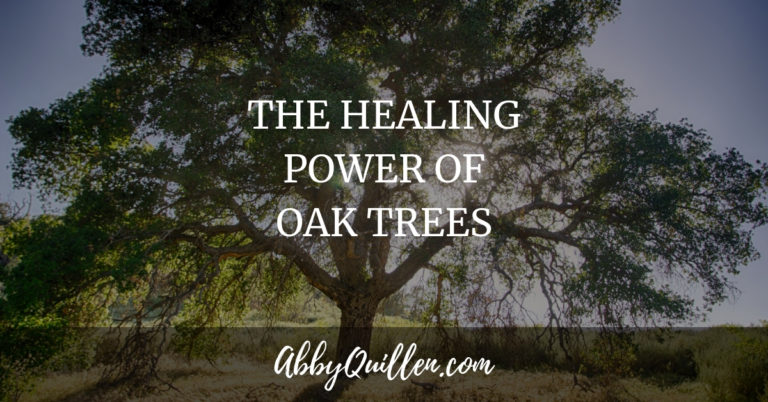7 Ways to Bounce Back From Burnout
“The only people for me are the mad ones, the ones who are mad to live, mad to talk, mad to be saved, desirous of everything at the same time, the ones who never yawn or say a commonplace thing, but burn, burn, burn like fabulous yellow roman candles exploding like spiders across the stars…” – Jack Kerouac
I have a great life. I get to spend lots of time with my son and watch him learn and grow, and at the same time, I’m building a writing career. I’m doing what I’ve always wanted to do. And yet sometimes, I feel stuck, tired, frustrated, and overwhelmed. Sometimes I get burnt out … and that’s okay.
I used to imagine that I could always be on top, that I could be one of those people who “burn, burn, burn” as Jack Kerouac wrote. But as the years pass, I’m more accepting of life’s seasons, of natural cycles of dormancy and energy, of the inevitability of falling into ruts.
For me the key is not avoiding burnout (or any other emotion), but learning from it, developing resiliency – bouncing back. That’s why I’ve been accumulating these strategies for inevitable bouts of burnout:
1. Plan a vacation
We can learn something from Europeans when it comes to holiday. They take eight weeks off a year on average and work shorter work weeks than we do, but they keep pace with us when it comes to productivity. This year Switzerland and Sweden ranked first and second in the World Economic Forum’s Global Competitiveness rankings, even though both countries require workers to take at least a month of paid leave each year. In fact, the United States is the only developed country that hasn’t realized the value of mandatory paid leave for workers.
In studies vacations have been shown to boost productivity, improve health, brighten the mood, invigorate, and induce feelings of happiness – especially when you are anticipating time off. So next time you’re feeling burnt out, consider arranging a getaway. (Hint: leave your laptop at home.)
2. Power down
Maybe you’ve seen terms like “secular sabbath”, “digital sabbatical”, and “day of unplugging” bandied about the blogosphere. All basically mean the same thing – taking at least a day off each week, not just from work, but from email, Facebook, twitter, YouTube, etc. I’m an information junky, and I love the Internet as much as anyone I know. But I love my day off from it more. I can’t believe it took me so long to tap into the restorative value of powering down.
Even with a day off each week, when I start feeling burnt out, I usually realize I’m spending too much time online. My antidote? Discipline. I only let myself check email twice a day. I make myself write down everything I want to Google and do it all at once. I establish an electronic sunset, where the computer and gadgets get turned off everyday at six p.m.
It can be a little scary to disconnect, especially when you work at home. But I like what writer Shannon Hayes has to say about it:
“My computer is turned off every morning, once my work day is complete, usually around 9am. At that point, I tune out the rest of the world and tune into my family, home, and farm. Very often the telephone gets turned off, too. So does the radio. … I didn’t always live this way. It was a choice I eventually made about using my time. Voices talking on the radio generated mental interference when trying to interact with people in the room where I was standing. Worse than that, I observed that email correspondence throughout the day, habitual Googling, and a steady-stream of web-updates were having a negative impact on my soul. Fixating on the computer made me an intolerant mother to my kids, had me doing stupid things like boiling over my soup pots, and—even if I was reading great news on the screen—it left me crabby.”
3. Clean and organize
I know, this one’s not as fun as taking a day off or embarking on a getaway, but I swear it works. It’s not just that a clean office and organized files make working easier. When I’m cleaning and organizing, I inevitably find old notes, article and story ideas, plot outlines, etc. that can kick start creativity. Don’t forget to organize and back up computer files too.
4. Turn off the noise
I love podcasts, and I’m a huge fan of public radio – To the Best of Our Knowledge, RadioLab, and This American Life to name a few. I also love listening to music. But when I’m starting to feel burnt out, I turn it all off. I listen to my thoughts. I listen to my husband and my son. I listen to the sounds of the wind and trees. I try to listen to the sounds behind the sounds, “the ragged edge of silence” as John Francis calls it:
[youtube=http://www.youtube.com/watch?v=lM5zQHglKGE&feature=player_embedded]
In studies noise stress has been linked to impaired cognitive function, the release of stress hormones, and depression. Studies indicate that chronic low-level noise in an office environment impacts workers negatively even when we’re not aware of it. So if you’re suffering from burn out, take an inventory of the volume around you and consider dialing it down.
5. Attend a conference or take a class
I try to attend one workshop, class, or lecture a month, and I always walk away inspired. Last summer I took a class on writing essays, learned a ton, and met a great group of writers, whom I still meet with. This summer I’m planning to attend a three-day conference. For freelance writers and bloggers, excellent classes and conferences abound, many of them flexible and online. They may seem expensive, but in my experience, they pay off many times over.
6. Interview someone
I’ve never interviewed anyone who didn’t inspire me. I feel fortunate that I get to talk to interesting people for my job, but you don’t have to write articles to interview people. You just have to get to know someone and focus on actively listening instead of talking. Most people are eager to talk about themselves and their projects – even to a journalist. It’s a great way to get inspired and meet interesting people … and if you’re so inclined, you can turn it into a published profile or blog post. If you’re in a field unrelated to writing, you might consider interviewing someone whose career inspires you.
7. Connect with nature
Nature gave us a great burnout cure … it’s called nature. Just looking out a window at trees makes workers feel more satisfied with their jobs, helps surgical patients heal faster, and reduces anxiety in highly-stressed kids. Imagine what a walk in a park, mountains, or woods can do for us.
I’d love to hear your ideas. How do you prevent or bounce back from burnout?



Like you, I turn off the noise and listen to my thoughts. Often reading a good novel takes me away a little from my own reality, giving me the chance to escape into my imagination and rest a little.
I’m lucky, my studio looks out on trees, and I can watch nature doing its thing everday. A great distraction from the worries in life.Its free, it (nature) doesn’t expect your active involvement, and you gain better health. I would like to add that cloud watching is an excellant stress buster. The sky changes every few minutes, always a new picture to look at, and there are many stunning pictures to look at.
Arranging a getaway is nice, but when you only have 10 days a year to take off, it can be difficult to do anything. Especially when you take a day every now and then because of snow/flooding/etc. 🙁 boo
I do love to organize, but I don’t like cleaning. It’s very odd.
For a long time I didn’t have internet at home. A long time being 2 and a half years. I rarely, if ever, went on the internet. It felt weird at first, since I had been a hardcore internet-er for most of my life, but it soon became the norm. I ended up drawing a lot more, and not being distracted changed the course of my artwork.
Organizing does help a lot with making me feel better! It’s like I can finally think after making sure everything is put away where it should be!
Great list! I work from home as a writer too and find that even just stepping out on the porch helps me to slip out of work mode and into “nature-y” mode. I observe the sky, the trees, the flowers, and come back in refreshed.
Getting away from the school year during summer, that’s rejuvenation time for a teacher.
Going for a walk is my ultimate way of clearing my mind and calming my soul. I go for walks in the evening, and make sure to walk slowly. Getting fresh air, looking at nature and discovering new things in my area leaves me feeling refreshed and energised. It is a small, but very powerful thing that we can do every day.